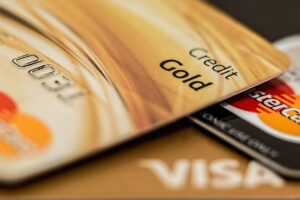
Source
Debt is a fact of life. From student loans to mortgages, it seems like every milestone of adulthood requires some form of debt. It’s no wonder that a majority of adults are buried in it, causing major anxiety for people. They dread the day their bills would come, fearful of the words “default” and “late fees”.
In today’s world of mounting debts, how can you avoid sinking into this deep dark hole? Here are few important things to remember to keep you off the path of debt.
Live within your means. It’s simple but smart. If you don’t want to be in debt, learn to live within your means. Only spend the money you have and can afford to part with. If you see something you want but cannot purchase yet because you lack the cash, assess if you really need to have it now or if you can wait until a little later to buy it.
Be frugal. Ask yourself: do you really need that overpriced latte? Or that new expensive phone? Do you have to eat out–for the third night this week? Always think twice before swiping that card or digging for cash. Make your own cup of coffee, prepare your own meals instead of ordering or eating at a restaurant, and do your research and opt for less expensive alternatives offering the same quality when purchasing something.
You don’t need all those credit cards. Stick to just one or two. And make sure that when you are choosing your credit card, you pick one that has low interest rates and great perks.
But what about when you already have debt?
Pay at least the minimum, but if at all possible, pay more than that. Credit card debts, especially unpaid ones, are very quick to get larger because of high interest rates and late fees. Make it a point to pay at least the minimum. If you can afford to pay more, then do so. This will go towards you slowly chipping away at your credit card debt and not just staving off defaulting on it.
Have a monthly budget. It is very important to operate on a budget. It will help you avoid overspending and even help you start on your savings. Having a budget will also force you to keep track of your expenses and your bills.
Try debt consolidation. This means consolidating all your debts from different institutions into one large debt that you can pay off. It would also mean that you can enjoy a smaller interest rate. But do make sure pay this off, too, which brings us to our next tip.
Pay your debts. If you owe something, pay it off. If you avoid paying debts, your bank will slap you with late fees that could compound your debt into something that would someday seem insurmountable. Not paying your debt will also bring your credit score down. Having a bad credit record can sometimes affect employment prospects as well as affect the approval of any future loans like mortgages.
When it comes to debt, having as little of it as possible is always a good thing. Never bite off more than you can chew and always pay back what you owe.
This article originally appeared on Payment1.com
